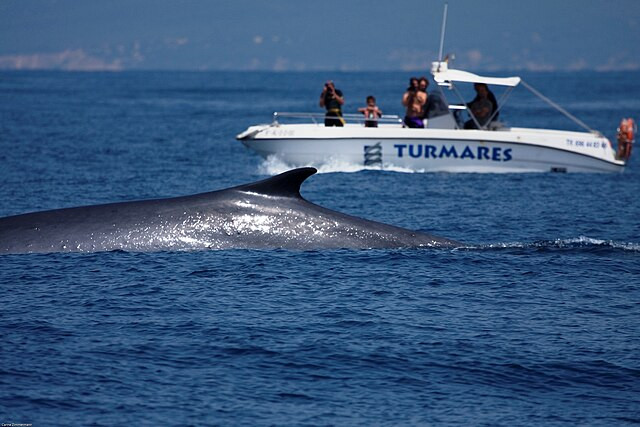Japan is set to expand its commercial whaling activities by adding large fin whales to its list of allowable catch species, five years after the country withdrew from the International Whaling Commission (IWC) and resumed commercial whaling in its territorial waters and exclusive economic zones, Japanese government spokesperson Yoshimasa Hayashi announced on Thursday.
The Fisheries Agency of Japan recently sought public comment on a draft revision of its aquatic resource control policies that would permit the commercial catching of fin whales. This proposal comes in addition to the three relatively minor whale species-minke, Bryde's, and sei whales-currently allowed under Japan's commercial whaling program. Last year, Japanese whalers caught a total of 294 whales from these three species, according to the Fisheries Agency.
Chief Cabinet Secretary Yoshimasa Hayashi, whose electoral district is traditionally known for whaling, expressed the government's support for the sustainable use of whales as part of Japan's traditional food culture. "Whales are important food resources and should be sustainably utilised, based on scientific evidence," Hayashi stated during a regular press conference. "It's also important to inherit traditional food cultures in Japan."
The Fisheries Agency's decision to propose the inclusion of fin whales in the allowable catch list follows stock surveys that confirmed a sufficient recovery of the fin whale population in the North Pacific. However, an agency official, speaking on condition of anonymity, clarified that the plan is not intended to increase the overall supply of whale meat, and whalers who catch fin whales will not necessarily have to meet a specific quota.
Japan's whaling practices have long been a source of controversy and criticism from conservationists. The country faced backlash when it launched what it called "scientific research whaling" in 1987, following an IWC regulation that banned commercial whale hunts. Many opponents viewed this as a cover for commercial hunts. When Japan announced its withdrawal from the IWC in 2018, countries such as Australia and New Zealand expressed their disappointment.
Despite the controversy, anti-whaling protests have largely subsided since Japan terminated its much-criticized Antarctic research hunts in 2019 and limited its commercial whaling activities to Japanese waters. The government and whaling industry stakeholders are now focused on promoting the sustainable use of whales and preserving Japan's traditional food culture.
Whale meat consumption in Japan peaked in the early 1960s, serving as an affordable source of protein during the post-World War II years. However, as other meats became more readily available, whale meat consumption has declined significantly, with recent annual supply hovering around 2,000 tons, according to Fisheries Agency statistics. Japanese officials aim to increase this figure to approximately 5,000 tons to support the industry's viability.
Public opinion on whale consumption in Japan remains divided. Yuuka Fujikawa, a resident of Hokkaido, noted that whale meat is rarely seen in supermarkets, and she has never tried it herself. In contrast, Hideyuki Saito from Saitama prefecture expressed his desire for more people to appreciate the taste of whale and for the product to become more popularized.
International tourists visiting Japan also hold varying views on the matter. Carlos Sempere Santos, a 28-year-old tourist from Spain, said he could not imagine eating whale, as he considers them special and intelligent animals. Shirley Bosworth from Australia opposed whaling, stating that whales "should be protected" and shared her experience of people uniting to push beached whales back into the sea in her home country.






